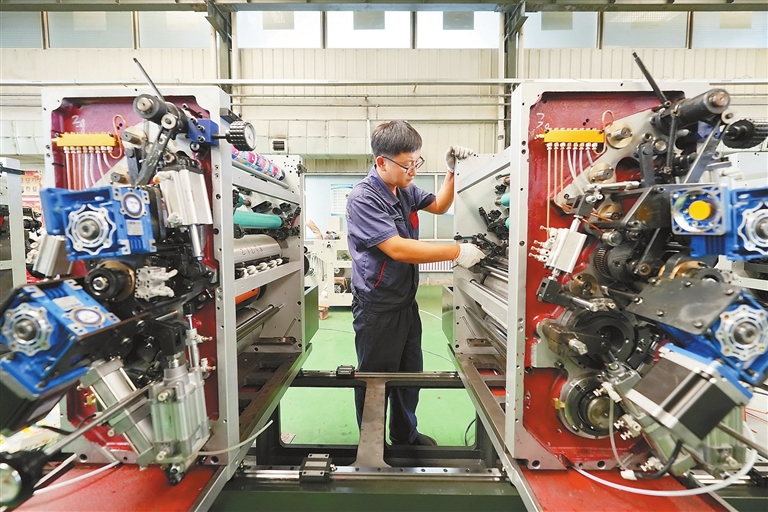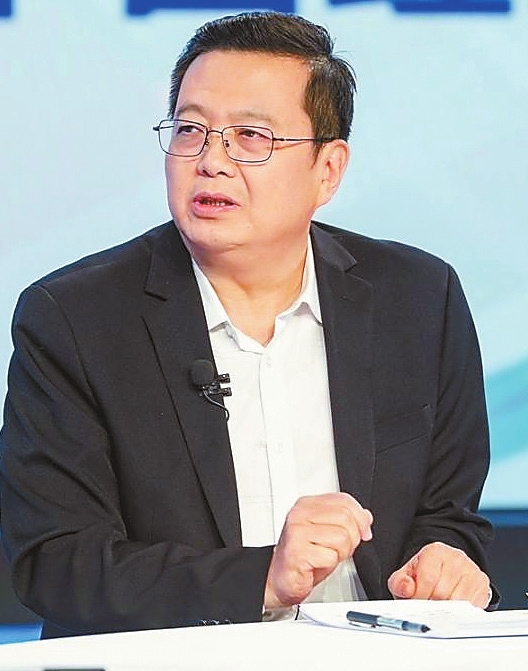


CHINA has propelled forward, forging new paths for its private economy amidst a global economic recovery that has been languid. This initiative aims to catapult the development of a sector anticipated to be a vanguard of innovations and a chief propellant for Chinese modernization. Challenges for private firms Wei Dong, head of the recently established bureau for private economy development under the National Development and Reform Commission (NDRC), expressed optimism. “China’s economy will continue to improve in the long run, and the private economy, a major force in China’s modernization drive, will also enjoy long-term positive momentum,” he said during the China Economic Roundtable hosted by Xinhua News Agency. Recent data revealed a 5.2% year-on-year growth in China’s economy during the first three quarters of 2023. Parallel to this overall recovery, the private sector witnessed marginal improvements in the January-September period, demonstrating accelerated growth in industrial investment and output. Recognized as a significant taxpayer, job provider, and contributor to GDP growth, the private sector has long been promoted by policymakers for its paramount role. However, China’s 50 million plus private businesses have faced pressure since the beginning of this year due to external factors, triggering apprehensions in an economy that is still convalescing. Common bottlenecks currently faced by private enterprises involve capital, talent, information, technological innovation, and the business environment, according to Wei Chu, vice dean of the School of Applied Economics at Renmin University of China. Chen Hongbo, vice president of Guangdong Jaten Robot and Automation Co., Ltd., attested to the challenges, saying, “Since the beginning of this year, as orders kept ballooning, we have been under liquidity stress. We have to ensure timely delivery despite payment delays.” Huang Kunyu, managing director of Esquel Group, said his company has trouble with fluctuating demands. He emphasized the necessity for enterprises to promptly adjust their strategies in line with market fluctuations. The NDRC said that it is urgent to improve the system and mechanism to promote the growth of the private sector in view of the new situation, boost the confidence of entrepreneurs, and further stimulate the vitality of the private economy. In response to this exigency, the NDRC established the private economy development bureau, the first of its kind in China solely dedicated to the private sector. New bureau Wei Dong, the head of the bureau, emphasized the pivotal role of the bureau as a specialized entity dedicated to the private sector, which will ensure the high-quality development of this sector. “We are dedicated to serving the growth of the private sector,” Wei said, adding that the bureau and private enterprises are closely connected, akin to members of the same family. During a roundtable discussion, Wei said the bureau’s primary function is to provide comprehensive support to the private economy. The bureau’s chief responsibilities are closely monitoring the developments within the private economy, addressing its unique requisites, orchestrating the formulation of policies and strategies to bolster its progress, and delivering policy incentives to propel private investment. Wei also mentioned the bureau’s commitment to establishing a regular communication mechanism with private firms, in order to resolve critical issues and bolster their international competitiveness. To fulfill these objectives, Wei explained the steps taken by the bureau. For instance, the bureau included local governments’ support for the private sector into the roster of matters annually overseen by the State Council, with rewards slated for outstanding performances in this aspect. China has recently introduced a suite of policies aimed at boosting the private economy. In mid-July, the Communist Party of China Central Committee and the State Council jointly issued guidelines focused on augmenting the growth of the private economy. These guidelines promised improvements in the business environment, amplified policy backing, and reinforced legal assurances for private companies. Later in July, the NDRC unveiled 17 measures aimed at further invigorating private investment. Collaborating with various departments, the commission also jointly released 28 measures to stimulate the expansion of private enterprises, concentrating on market access, legal assurances, administrative services, and the business environment. Moreover, in early August, the country extended and introduced a series of preferential policies tailored for small and private businesses, including tax rebates and fee cuts. To bolster financial support for the private sector, the NDRC has introduced a mechanism referring quality private firms with financing needs to seven banks. A total of 715 private investment projects have thus far been referred to the relevant banks. Liu Jun, deputy head of the State Administration for Market Regulation, emphasized that the administration continues to enhance supervision and law enforcement to keep the market in order, ensure fair play, and safeguard intellectual property rights, thereby optimizing the business environment for private enterprises. Entrepreneurs’ feedback Qitan Technology Ltd., based in Chengdu, stands as a pioneering high-tech enterprise specializing in nanopore sequencing technology. The company achieved a major milestone in 2020 by unveiling China’s first nanopore gene sequencer. Bai Jingwei, a co-founder of the company, affirmed the pivotal role of China’s supportive policies in the healthcare sector. He said that government support is a driving force behind the substantial growth witnessed in the sector over the past five to 10 years. Optimistic of the future, Bai said the company will continue to advance gene sequencing technology and enhance its accessibility and affordability for the general public. Meanwhile, Zhou Zhen, president of Guangzhou Hexin Instrument Co., Ltd., was upbeat about the market potential of technology-intensive products. He said this sector offers huge opportunities for his company’s future growth. Specializing in the field of mass spectrometry, Zhou’s company has been listed among the inaugural cohort of “little giants” endorsed by the Ministry of Industry and Information Technology. This status designates the company as a select, innovation-driven company, entitling it to a range of supportive government policies. Hangzhou Wahaha Group, a school-run factory turned into a food and beverage heavyweight, is deemed an iconic Chinese private firm. Wahaha’s founder, Zong Qinghou, emphasized the role of bold innovation and continuous reform as fundamental elements propelling the company to surpass competitors in the fiercely competitive market and ensuring sustained expansion. “For Chinese entrepreneurs, it is essential to keep in mind the importance of patriotism, continuous innovation and wellbeing of the employees,” Zong said. These principles, articulated by the esteemed 77-year-old entrepreneur, underscored the fundamental ethos that has steered Wahaha’s remarkable journey. (Xinhua) | 
